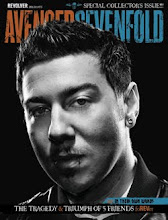The Analysis of the Zoo Story
By Edward Albee
Themes:
1. Isolation of human existence in a world without God.
2.Life without purpose or examination.
3.Loneliness.
Characters:
1.Peter: A plain-looking man in his early 40s who smokes a pipe and carries horn-rimmed glasses. His dress and manner are that of a younger man.
2. Jerry: A man in his late 30s, carelessly dressed, once muscular and handsome. He is weary.
Setting:
A park bench in Central Park, New York City, in the present time on a sunny day.
Synopsis:
Peter, a middle-class publishing executive who lives in ignorance of the world outside his married life, sits on a park bench, reading. Along comes Jerry, an isolated, disheartened man who is very troubled and probably mentally ill.
Jerry is desperate to have a meaningful conversation with another human being. He instrudes on Peter’s peaceful state by interrogating him and forcing him to listen to his life story and the reason behind his visit to the New York Zoo.
The action is linear, unfolding in front of the audience in “real time”. The elements of ironic humour and unrelenting dramatic suspense are brought to a climax when Jerry brings his victim down to his own savage level and initiates a shocking ending.
READMORE -
By Edward Albee
Themes:
1. Isolation of human existence in a world without God.
2.Life without purpose or examination.
3.Loneliness.
Characters:
1.Peter: A plain-looking man in his early 40s who smokes a pipe and carries horn-rimmed glasses. His dress and manner are that of a younger man.
2. Jerry: A man in his late 30s, carelessly dressed, once muscular and handsome. He is weary.
Setting:
A park bench in Central Park, New York City, in the present time on a sunny day.
Synopsis:
Peter, a middle-class publishing executive who lives in ignorance of the world outside his married life, sits on a park bench, reading. Along comes Jerry, an isolated, disheartened man who is very troubled and probably mentally ill.
Jerry is desperate to have a meaningful conversation with another human being. He instrudes on Peter’s peaceful state by interrogating him and forcing him to listen to his life story and the reason behind his visit to the New York Zoo.
The action is linear, unfolding in front of the audience in “real time”. The elements of ironic humour and unrelenting dramatic suspense are brought to a climax when Jerry brings his victim down to his own savage level and initiates a shocking ending.
